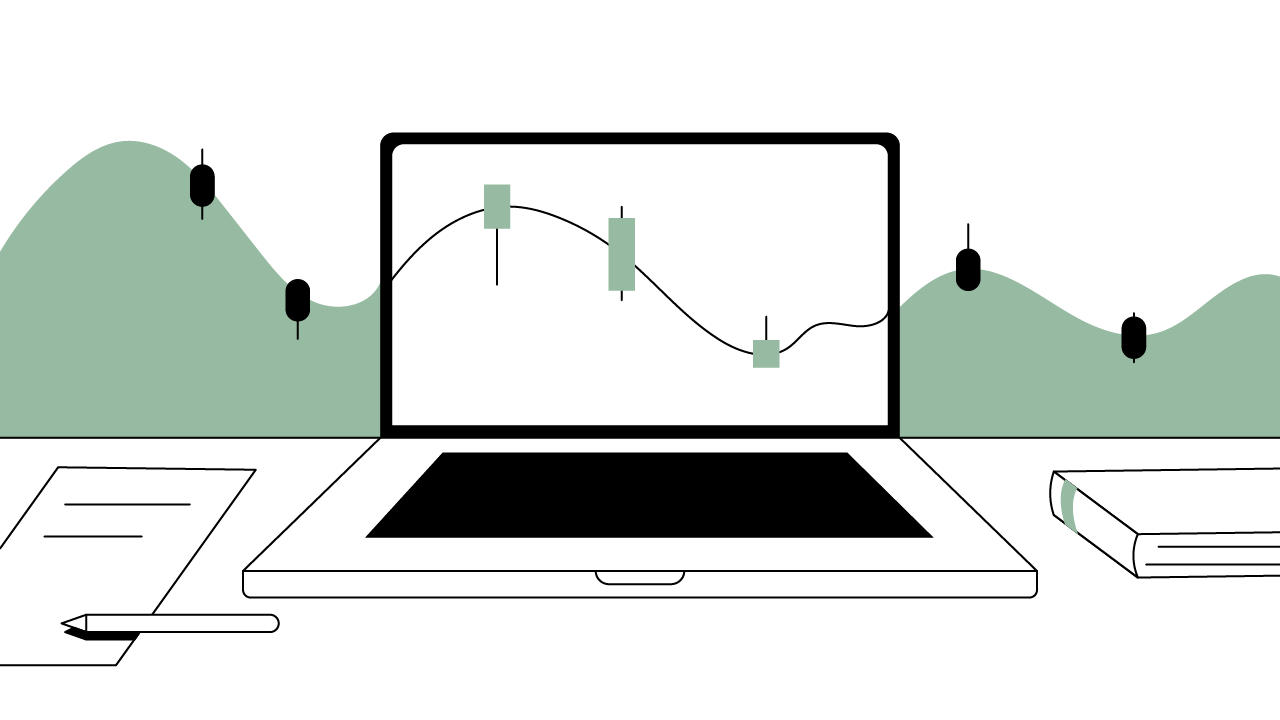Contents
Crypto Portfolio and Asset Management Platforms
Crypto portfolio trackers, automated and copy-trading solutions, app-based portfolio management, and more.
Updated December 21, 2021 • 5 min read

Summary
Online portfolio and asset management platforms have seen immense increases in quality, quantity, and adoption in recent years. The rapid development of financial technology (FinTech) applications has fueled a transition to web- and mobile-based platforms that can improve the accessibility and delivery of financial services. However, many of these solutions lack digital asset integrations. Acknowledging this gap in the market, several companies have begun to develop platforms that cater to cryptocurrency investors. For example, simple crypto portfolio trackers aggregate data, automated and copy-trading platforms help investors manage risk, and app-based solutions facilitate mobile oversight for on-the-go access. In addition, decentralized alternatives to such crypto asset management tools have begun to emerge, replacing intermediaries with automated smart contracts.
Digital Portfolio Management Tools
Online portfolio and asset management platforms have grown into an important part of the modern investor’s arsenal. Collectively, these tools continue to eliminate barriers to entry and improve access to financial services. Although there are many online asset management platforms that support diversification across the legacy finance ecosystem, they often lack significant crypto integrations. As such, those with limited crypto market knowledge may find it more challenging to build and manage crypto portfolio allocations.
In recent years, many portfolio management platforms have hit the market with functionalities that can enable crypto participation in a number of ways. This suite of emerging tools includes simple portfolio trackers, automated crypto copy trading tools, app-based portfolio management services, and platforms that integrate decentralized finance (DeFi) protocols.
Crypto Portfolio Trackers
Just as conventional portfolios consist of two or more investment products, crypto portfolios consist of multiple digital assets. For example, an investor might hold bitcoin (BTC), ether (ETH), and stablecoins in the same portfolio. In some cases, this diversification requires investors to use and manage different exchange platforms to execute trading strategies, fund accounts, or access specific digital assets.
Many crypto investors use multiple platforms, exchanges, and products to buy, sell, and store the various cryptocurrencies in their overall portfolio. To help manage this complexity, such crypto investors often use a cryptocurrency portfolio tracker to aggregate portfolio information from different sources. These websites and apps enable users to track the value of their cryptocurrency holdings in real time, even when using multiple crypto wallets. To display this information, tracking apps and websites can link directly to a user's exchange or third-party crypto wallet using a unique key known as an application programming interface (API).
Some of the most well-known crypto portfolio trackers include:
Crypto Pro: The Crypto Pro app is available for iOS and Android devices. This platform offers news updates, price alerts, and portfolio tracking for most traded cryptocurrencies and tokens across most trading platforms.
Kubera: The Kubera portfolio management platform allows users to track their traditional and crypto assets in one place. It operates as a hybrid net worth tracker supporting global banks, brokerages, stocks, and fiat currencies.
Delta App: Like Kubera, the Delta App allows investors to track the live prices of most cryptocurrencies as well as most traditional investments like stocks, bonds, exchange-traded funds (ETFs), indices, forex, mutual funds, futures, and options.
Although crypto portfolio managers tend to utilize relatively simple infrastructures, they are crucial for many investors, especially across the decentralized ecosystem. Many investors want to understand how their crypto assets perform to achieve a well-balanced, well-diversified portfolio that optimizes trading strategies.
Mobile-Only Crypto Tracker Apps
As the name suggests, app-based asset management platforms are only available through mobile applications. Although experienced crypto investors often require the more advanced features found in some of the other types of portfolio management platforms, many beginners may find these mobile-only solutions more accessible and easy to use.
B21: Using the B21 portfolio management tool, users can establish an investment goal, select the crypto assets they’d like to invest in, and set daily and monthly investment allocations. The app also supports recurring payments and provides a simple interface to track portfolio performance.
Swissborg: The Swissborg app integrates portfolio analytics, asset analysis, and a smart engine that scours exchanges to find the best trade execution price. Users can also deposit their cryptocurrency to earn additional yield.
Automated Crypto Trading and Crypto Copy Trading
Automatic crypto investing can be a convenient way to enter the digital asset market with minimal experience. While exchanges like Gemini offer recurring buy options to enable dollar-cost averaging investment strategies, many more advanced traders are looking for even more powerful automation tools. Additionally, crypto copy-trading platforms are designed to allow investors to buy into pre-built portfolios and indices or subscribe to automated strategies that copy the trading behavior of experienced investors. New investors can supplement their limited knowledge by taking advantage of these portfolio management tools, enabling them to make more informed investment decisions. Some of the most notable automated and copy-trading platforms include:
Iconomi: The Iconomi digital asset management platform allows users to make cryptocurrency purchases, in addition to investments in crypto portfolios known as strategies. Anyone holding digital assets can create a crypto asset management strategy. When these strategies are publicly available, other investors can copy them within their portfolios. Every time an investor copies a crypto strategy, the creator of that strategy earns passive income.
Zignaly: The Zignaly platform supports automated crypto trading and copy trading. Investors can utilize the Zignaly trading bot to automate their asset management or connect external accounts to engage in crypto copy trading. In the latter option, users invest pre-built funds managed by experienced traders.
Cryptohopper: As an active portfolio management platform, Cryptohopper offers various tools, including automatic investing, exchange arbitrage, market-making bots, mirror trading, and even algorithmic intelligence. Cryptohopper’s automated trading and mirror trading features work similarly to other platforms like Zignaly, allowing users to simplify and unify the trading experience.
Shrimpy: The Shrimpy platform also allows investors to optimize their portfolio performance by copying strategies established by experienced traders. Users can also imitate the portfolios of investment funds like Coinbase Ventures, Blockchain Capital, or Binance Labs.
Decentralized Crypto Asset Management
Although all cryptocurrency exists on decentralized technology, many asset management platforms do not. Whether accessed through a web browser or mobile app, many of the cloud-based solutions we’ve discussed so far still rely on centralized Web2 network infrastructure. However, with momentum building behind the DeFi movement, decentralized protocols have begun to emerge:
Index Coop: Index Coop calls itself a “Decentralized and Autonomous Asset Manager.” As such, INDEX token holders govern, maintain, and upgrade the Index Coop platform. In short, Index Coop creates and maintains fully collateralized index products that investors can buy into, including the well-known DeFi Pulse Index (DPI).
InstaDApp: The team behind the InstaDApp protocol describes the product as "Extensive Modular DeFi Middleware." In other words, this strategic portfolio management platform utilizes smart contracts to manage and optimize funds across multiple protocols. As a result, investors can earn variable algorithmic interest on their cryptocurrency deposits or participate in lending, swapping, and leveraged borrowing.
Balancer: Balancer is an automated trading platform and crypto portfolio manager. The protocol facilitates efficient crypto trades using crowdsourced liquidity and supports the permissionless exchange of ERC-20 tokens. Users can also create crypto asset portfolios that automatically rebalance as traders follow arbitrage opportunities. This process generates passive income for portfolio creators in the form of transaction fees.
Simplifying Crypto Asset Management
The expanding ecosystem of crypto portfolio allocation and asset management platforms is providing a critical gateway to digital asset markets. As the cryptocurrency ecosystem matures, a variety of portfolio management platforms are slated to continue their development, keep pace with investor expectations, and offer a streamlined user experience to facilitate crypto adoption.
Cryptopedia does not guarantee the reliability of the Site content and shall not be held liable for any errors, omissions, or inaccuracies. The opinions and views expressed in any Cryptopedia article are solely those of the author(s) and do not reflect the opinions of Gemini or its management. The information provided on the Site is for informational purposes only, and it does not constitute an endorsement of any of the products and services discussed or investment, financial, or trading advice. A qualified professional should be consulted prior to making financial decisions. Please visit our Cryptopedia Site Policy to learn more.

Is this article helpful?


